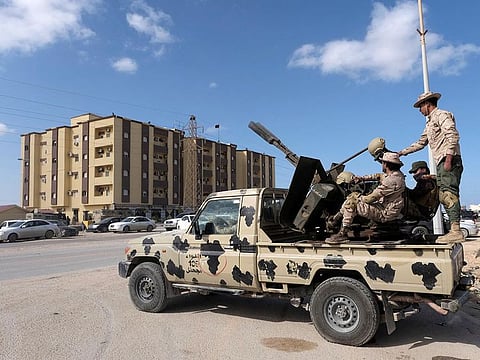Uncertainty in Libya shows no signs of ending
Dismissal of Dbeibah, who failed to hold polls, may increase divisions

So now, Libya could have two prime ministers. On Thursday, the country’s east-based parliament appointed former Interior Minister Fathi Bashagha as the new prime minister. The House of Representatives said its action was prompted by the inability of PM Abdul Hamid Dbeibah to hold national elections on December 24. The elections had been the cornerstone of the peace process being coordinated by the United Nations.
Lawmakers also voted for constitutional amendments for a new road map for transition to a democratically elected government. They want to create a new electoral commission and have appointed a committee to draft a new constitution.
But it is their move on Dbeibah that has become controversial. He is an influential businessman from the powerful port city of Misrata in the west. He became premier in February 2021 as part of the UN’s efforts to broker a peace deal.
Steering the country away from divisions
As per the deal, his government’s main purpose was to steer the country away from divisions, and lead it to elections in December of 2021. Dbeibah failed in this mission, and that was one of the reasons given by the House of Representatives for replacing him. What was also held against him was the fact that he broke his promise of not running for president while he was interim prime minister.
This move by the House of Representatives is likely to increase divisions in the already divided country, and produce two parallel administrations. Some militias in the west back Bashagha, while others support Dbeibah. The best case scenario now is that calm prevails, and armed factions don’t slug it out on the streets of Tripoli as Libyans are sick and tired of the lawlessness and violence that has plagued the country for most of the past decade.
Adding to the tense situation was the fact that Dbeibah survived an assassination attempt just before he was dismissed by the House of Representatives. Unknown assailants opened fire at his car in Tripoli. This alleged assault was a sign of just how bad things could get in Libya if the situation is not quickly brought under control.
From the beginning, not holding the vote on December 24 looked like an attempt by vested Libyan politicians to deny the Libyan people their rights. The political elite wants to hang on to its perks and power at the expense of the long-suffering masses. The path ahead for Libya is unclear.



